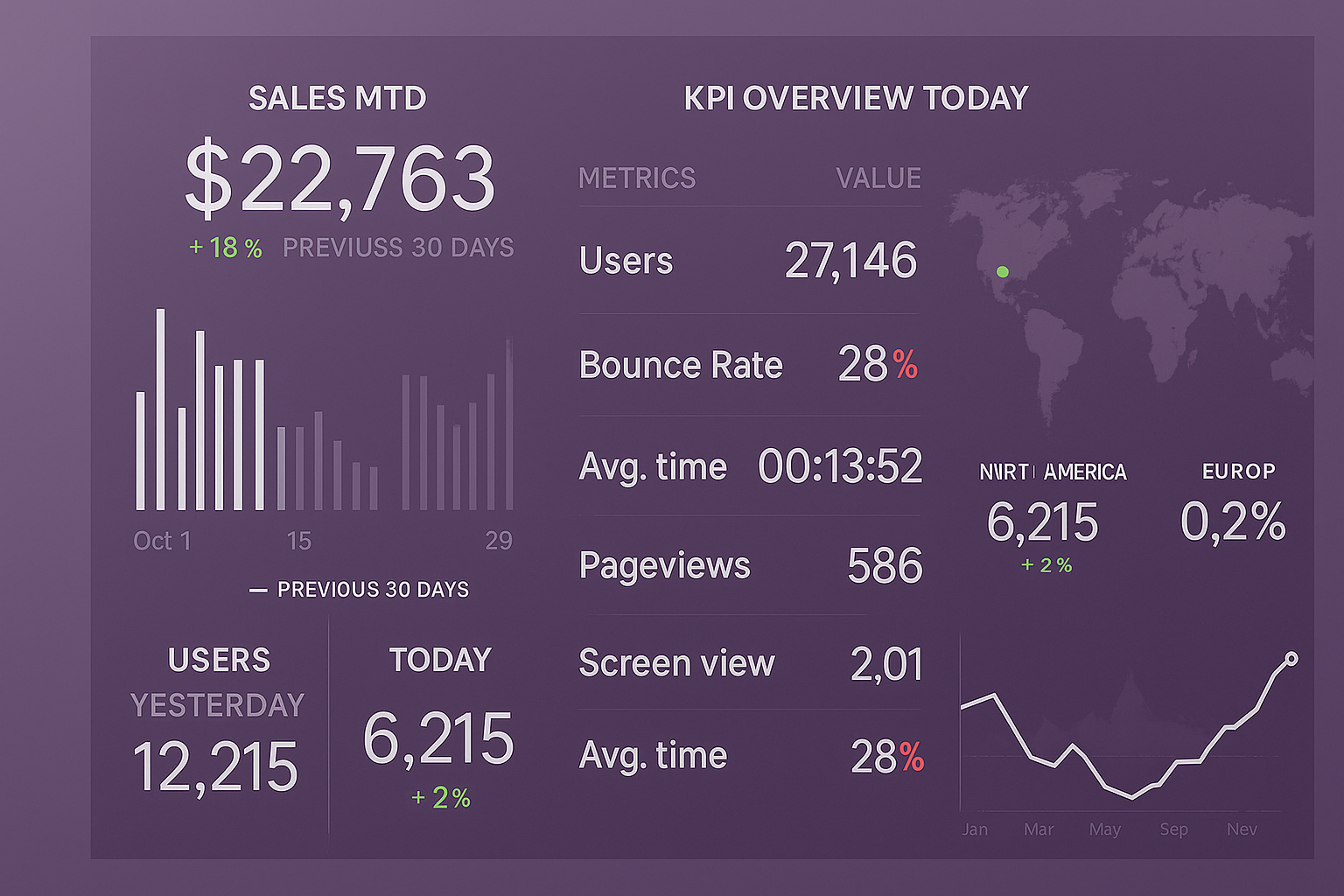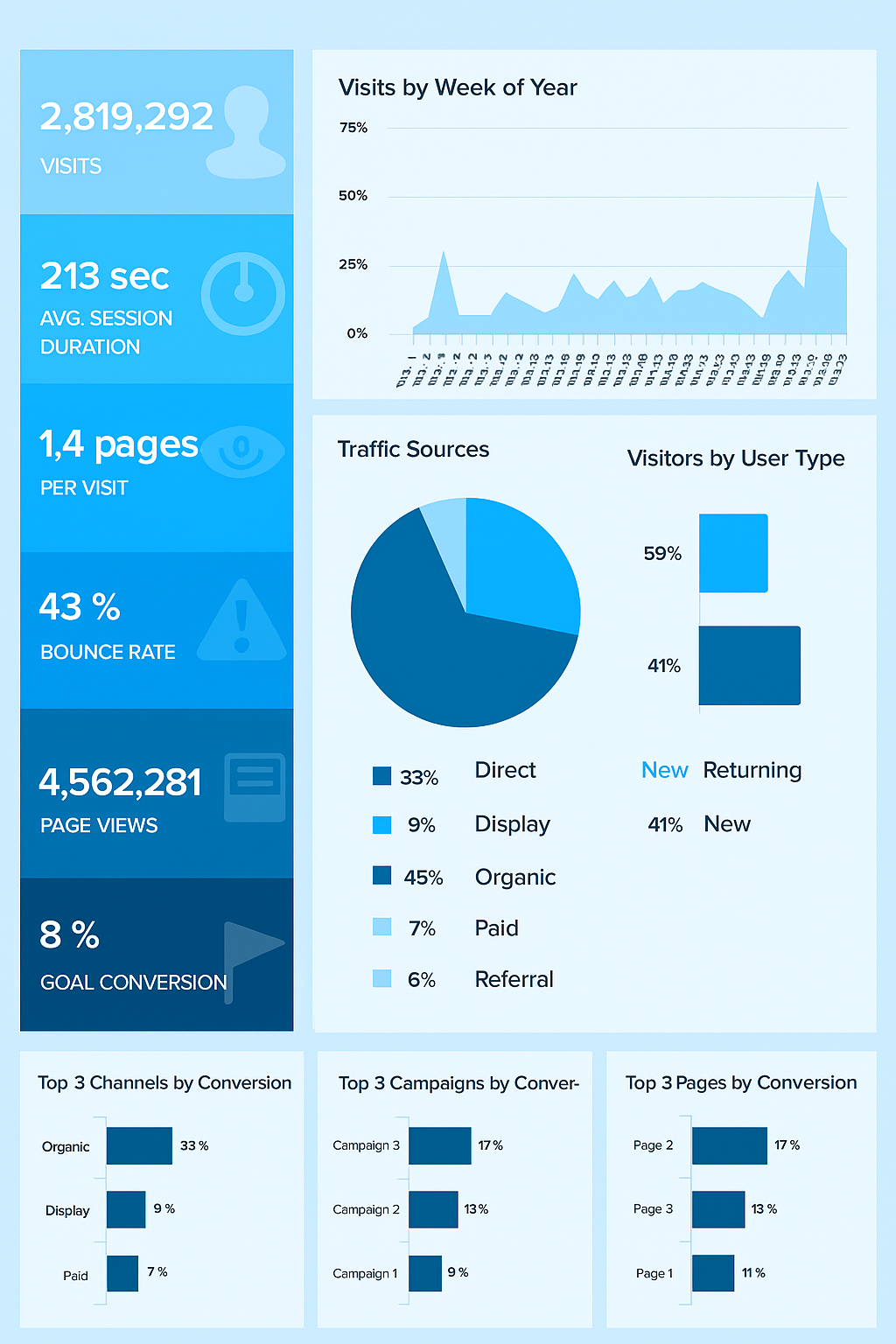

Business Intelligence (BI) refers to strategies, methods, and technologies that companies use to analyze and manage their business data to derive actionable insights. BI includes various processes such as data collection, integration, storage, preparation, and visualization. The goal is to process large amounts of structured and partially unstructured data in a way that makes it useful for decision-making.
BI systems enable the combination of internal data sources (e.g., ERP systems, financial and operational data) with external market data to gain a comprehensive view of the company’s situation. This allows businesses to identify trends, recognize opportunities, and minimize risks.
“Business Intelligence is a technology-driven process that analyzes business data and transforms it into actionable insights to enable decision-makers to make informed decisions.”
Common tools used include reporting, Online Analytical Processing (OLAP), dashboards, data mining, predictive analytics, and performance management.
The primary function of BI is to support decision-making processes at all corporate levels – from operational to strategic. While operational decisions involve monitoring parameters and intervening in case of deviations, strategic decisions target long-term company goals and priorities.
BI accelerates and enhances decision-making by transforming raw data into valuable information. This enables companies to:
Data visualization through dashboards, KPI indicators (e.g., traffic lights, gauges), and reports makes complex information quickly understandable and accessible – even for departments without deep IT knowledge.


Business Intelligence (BI) is used in almost all industries and business areas. Here are some typical use cases with concrete examples:
Technologically, BI systems are usually based on data warehouses or data lakes. These centrally consolidate data from various sources – such as CRM, ERP, or accounting systems – and prepare it for analysis.
The use of BI offers companies a wide range of advantages:
Overall, Business Intelligence fosters a data-driven corporate culture that replaces gut decisions with fact-based analysis, thereby supporting sustainable business success.
Business Intelligence is now an indispensable tool for companies aiming to remain competitive in the digital age. It combines modern technologies with strategic thinking to extract valuable insights from data and make them usable for better decisions. Its wide applicability across business functions and measurable benefits make BI a key component of modern business management.